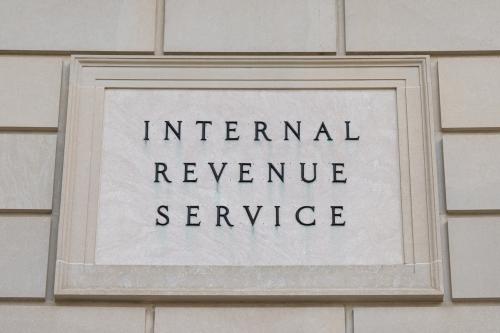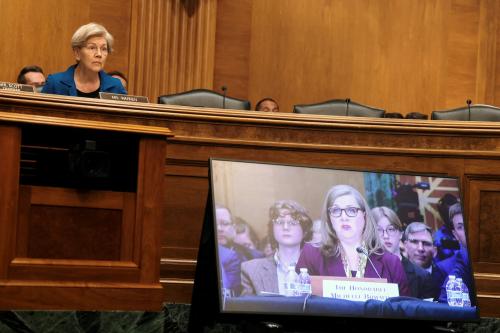President Trump has been America’s most forceful chief executive in recent memory. Since the beginning of his second term, he has asserted that he is using the executive powers granted to him by law and the Constitution legitimately to achieve what the people elected him to do.
Do the American people agree with Trump’s assessment, or have they come to believe that he is exceeding his legitimate authority? If the latter, how and when? During the past two months, high-quality public opinion surveys have begun to answer these questions.
At the most general level, solid majorities are of the opinion that President Trump is operating outside his legal and constitutional authority. Fifty-four percent of Americans told the New York Times/Siena poll that he was exceeding his presidential power, compared to 42% who said that he was exercising it. In response to a similarly worded question, 55% of the respondents to a Harvard Harris poll said that the president had exceeded his power. Sixty-nine percent of Americans responding to a recent Pew Research Center survey said that Trump was exercising more power than previous presidents, and most of them thought that this was bad for the country.
In addition to these broadly negative conclusions, Americans have objections to specific exercises of presidential power. For example, more than 6 in 10 believe that President Trump is misusing his office to punish speech he doesn’t like, investigate his opponents, and enrich himself, his family, and his friends. Among Americans who expressed an opinion, more than twice as many say Trump is directing the DOJ to go after his political opponents as say he is not; by 52-34, they believe that this is why James Comey is being prosecuted. And while 42% of Americans think that sending the National Guard into cities is needed to prevent crime from getting out of control, 51% fear that Trump could use such deployments to intimidate his opponents. Indeed, most polls conducted over the past two months find majority opposition to the president’s use of the National Guard in cities, with even greater opposition to the domestic deployment of active-duty military personnel for law enforcement.
Americans’ doubts about President Trump’s use of executive power do not end there. Fifty-one percent say that he is doing too much through executive orders, compared to just 27% who say that it’s about right. As for the judiciary, 56% think that the president is failing to obey some court orders. An overwhelming majority of Americans also believe that the president should obey court rulings, even when he disagrees with them.
On other issues, only 16% believe that it would be a good thing for the president to have the power to set interest rates or tell countries where to make their products.
America’s political institutions were designed to protect liberty, not to maximize efficiency, and most Americans like it this way. Asked whether they were willing to give up checks and balances “to have a government that can take action faster,” only 17% of Democrats and Independents answered affirmatively, as did 39% of Republicans, while 45% of Republicans turned down this offer.
A survey conducted by YouGov for the organization Issue One explains and expands upon these sentiments. Among its findings: Americans “overwhelmingly support our constitutional system of checks and balances,” including judicial review and Congress’s oversight authority and power of the purse. They also endorse a long list of presidential red lines and norms, expressing disapproval of measures such as ordering the U.S. military to use force against peaceful protestors, firing government watchdogs, imposing tariffs without congressional approval, and impounding funds allocated by Congress.
It is hard to assess the extent to which the public’s concerns about President Trump’s use of executive power will influence their overall assessment of his performance as president, or their willingness to vote for candidates of the president’s party in the 2026 midterm elections. It is also difficult to tell how much these issues play into the president’s low approval ratings. But when YouGov asked voters where the use of executive power stood relative to other issues, it ranked 4th—behind inflation, immigration, and jobs, but ahead of health care. If this early survey turns out to be a leading indicator of voters’ sentiments next year, the concentration of power in the president’s hands could emerge as a sleeper issue in the midterms.
The Brookings Institution is committed to quality, independence, and impact.
We are supported by a diverse array of funders. In line with our values and policies, each Brookings publication represents the sole views of its author(s).








Commentary
What Americans think about President Trump’s use of executive power
October 22, 2025